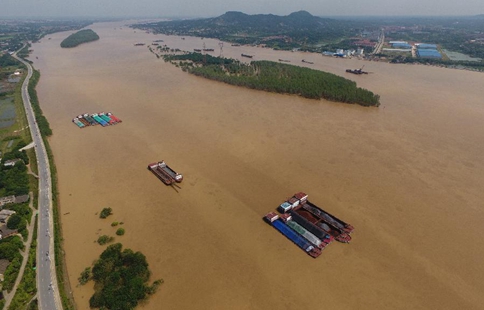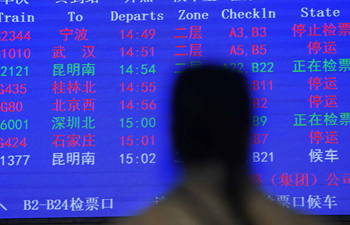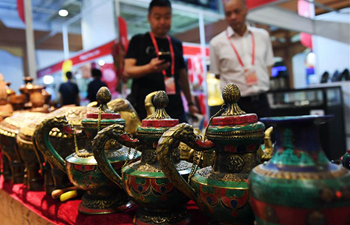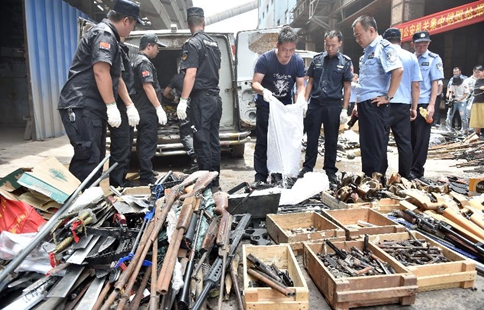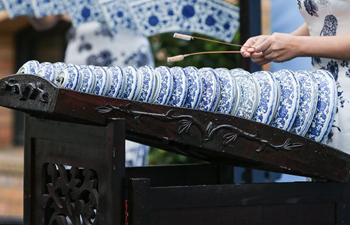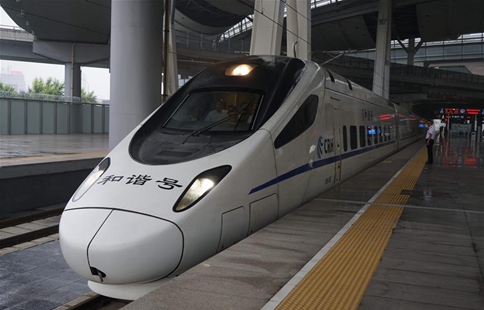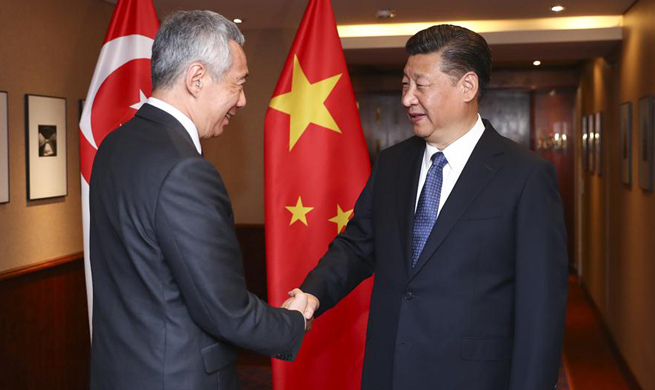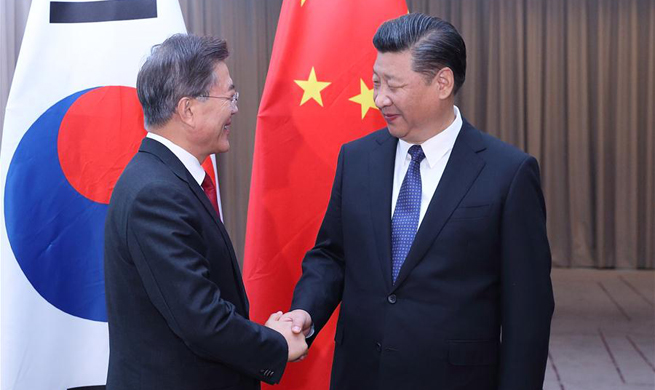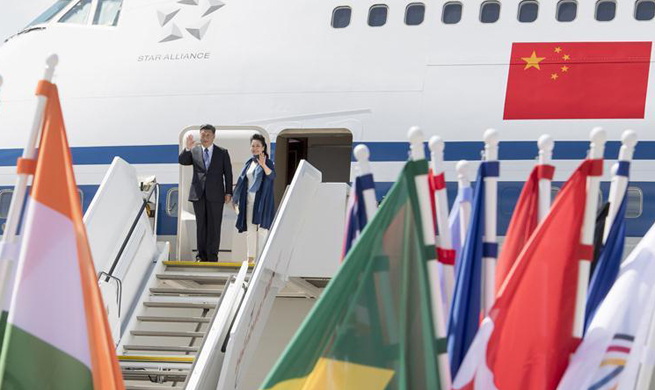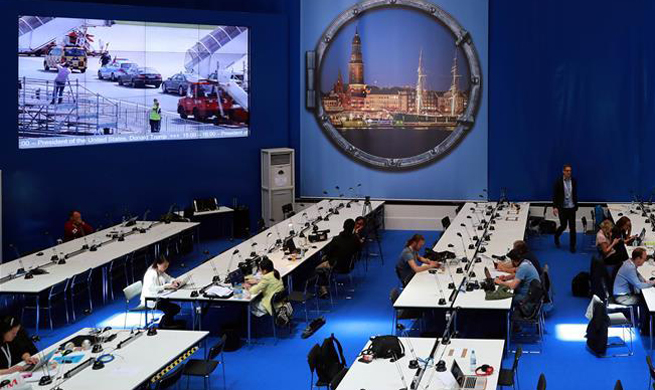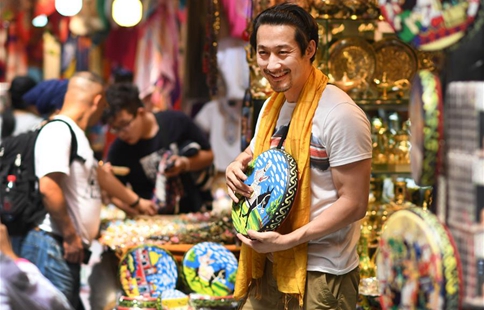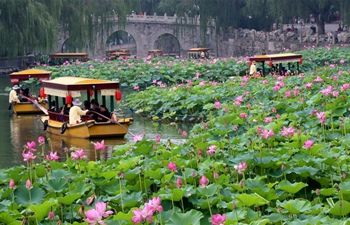TOKYO, July 7 (Xinhua) -- "I feel sorry for what Japan has done to China," 97-year-old war veteran Kei Jinguji told Xinhua in an interview ahead of the anniversary of the 1937 Lugou Bridge Incident, which marked Japan's full-scale invasion of China 80 years ago.
The war of aggression launched by Japan, which brought tremendous sufferings to the Chinese people, has also changed Jinguji's life.
Jinguji was born in 1920 in Kofu, a small city some 130 km west of Tokyo. He had graduated from college and was working in a government department in charge of telecommunications before joining the army at the age of 21.
Jinguji's unit was dispatched to China in 1943. As a communication soldier, Jinguji witnessed the atrocities committed by the invading Japanese army in China and the unconditional surrender of Japan in 1945, and returned to Japan with nothing but nightmarish war memories.
"The Japanese soldiers killed Chinese civilians and burnt down their houses...It was definitely an invasive war, and a unjust war. I feel sorry for being a part of the invading army," he said.
Back in Japan, while the war memories often stung him, the peaceful life brought with him many opportunities to reflect. Jinguji started reading history books and especially drew inspiration from Chinese leader Mao Zedong's article "On Protracted War."
"As Mao said, Japan's invasive war was unjust and could hardly get support from the international community, whereas China's anti-invasion stance could win support and sympathy from most of the countries in the world. China was destined to have the final victory," Jinguji stated.
"I feel sorry for what Japan has done, and my family and I want to contribute what we could to prevent the war between Japan and China from happening again," Jinguji said.
Since then, Jinguji and his family have been active advocates of friendship between China and Japan. Jinguji's eldest daughter is a member of the local Japan-China Friendship Association, and his youngest daughter used to study traditional Chinese medical science in Beijing and can speak fluent Mandarin.
Jinguji himself used to pay visits to China every year. "I've been to many places in China, but the Lugou Bridge has always been the one memorial spot that I was the most emotional about," he said, sorrowfully, as Japanese army attacking Chinese forces at the bridge on July 7, 1937 marked the outbreak of the full-scale invasion.
"My Chinese friends told me that it was a relief for them to hear that one of the Japanese invaders acknowledged the invasive war and apologized. I'm 97 years old now, and there's not much time left for me. Their words gave me some sort of inner peace," he admitted solemnly.
But the current situation in Japan worries the 97-year-old war veteran.
"The Abe administration is hyping up the so-called 'China threat' and is trying to revise Japan's peaceful constitution and make Japan a country that could start wars again. As a person who has experienced war in the past, I think it's a dangerous trend," he warned.
"The Japanese government should signal to the world that Japan will never start wars again. I really hope that Japan could be a peaceful country with no wars," he added, resolutely.




